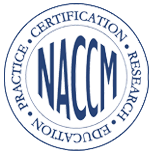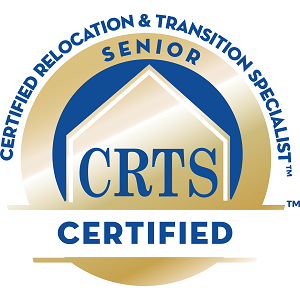Essential Self-Check Habits for Caregivers
As National Self-Check Month continues, it’s vital to turn our attention to a group often overlooked in the conversation about health self-checks: caregivers. In their dedication to caring for others, caregivers frequently place their own health and well-being on the back burner. This neglect can impact not only their own well-being but also their ability to provide effective care.
In recognizing the critical role of caregivers, it’s essential to highlight the importance of self-care and regular health self-checks in their daily routines. National Self-Check Month serves as a timely reminder for caregivers to pause and assess their health regularly. This blog post focuses on the essential self-check habits that caregivers should incorporate into their daily routines, underscoring the importance of self-care for those who spend their days caring for others.
Understanding the Role of Self-Care for Caregivers
Caregivers can sometimes overlook the critical importance of their own health and self-care. However, the ability of caregivers to provide high-quality care is intrinsically linked to their personal well-being.
For example, caregiving can be physically demanding. Tasks such as lifting, assisting with mobility, and performing household chores require physical strength and stamina. Without regular health checks and self-care routines, caregivers may face burnout or physical injuries, which in turn can impede their caregiving abilities.
The emotional aspect of caregiving is equally significant. Caregivers often develop strong emotional bonds with those they care for, which can lead to emotional fatigue or stress. Prioritizing mental health through regular check-ins, mindfulness practices, or even seeking professional support when needed is crucial in maintaining emotional resilience and stability.
Additionally, the quality of care a caregiver provides is directly influenced by their own health status. A caregiver who is physically and emotionally healthy is more likely to be attentive, patient, and compassionate. In contrast, a caregiver who neglects their health may struggle to maintain these qualities consistently.
Physical Health Checks for Caregivers
For caregivers, conducting regular physical health self-checks is essential for early detection of health issues and maintaining their ability to provide care. These specific checks are crucial for identifying potential health concerns early on:
- Blood Pressure Monitoring: High blood pressure is a silent risk factor for many health issues. Caregivers should regularly check their blood pressure to detect any signs of hypertension early, which can prevent more serious complications.
- Blood Sugar Levels: Regular monitoring of blood sugar levels can help in the early detection of prediabetes or diabetes. This is particularly important for caregivers who may experience irregular eating habits due to their demanding schedules.
- Skin Checks for Cancer Signs: Regular self-examinations of the skin for any new moles or changes in existing ones can be crucial in early detection of skin cancer. Caregivers should be aware of the ABCDE rule (Asymmetry, Border, Color, Diameter, Evolving) in skin checks.
- Self-Examinations for Breast/Testicular Cancer: Routine self-examinations for any lumps or irregularities can aid in the early detection of breast or testicular cancer. Caregivers should be familiar with the normal feel and appearance of their breasts or testicles and report any changes to a healthcare provider.
- Cholesterol and Heart Health Checks: Regular cholesterol checks are important for maintaining heart health. Caregivers should be aware of their cholesterol levels and seek medical advice if levels are high.
By incorporating these specific self-checks into their routine, caregivers can take proactive steps in managing their health. Early detection through these checks is key to preventing serious health issues and ensuring caregivers remain healthy and capable in their critical caregiving roles.
Mental and Emotional Well-Being Checks
For caregivers, maintaining mental and emotional well-being is just as crucial as physical health. The demanding nature of caregiving can often lead to stress, burnout, and emotional fatigue. Regular mental and emotional self-checks are vital to recognize these issues early and manage them effectively. Here are some key aspects of mental and emotional well-being that caregivers should regularly monitor:
- Recognizing Signs of Burnout: Caregivers should be aware of burnout indicators, such as chronic fatigue, a sense of dread about work, feeling undervalued, or experiencing detachment from the people they care for. They can periodically ask themselves questions like, “Do I feel constantly tired?” or “Am I becoming cynical about my caregiving role?” to gauge their emotional state.
- Self-Assessment of Emotional Health: Regularly evaluating one’s emotional health is crucial. Caregivers can reflect on questions like, “Have I been feeling unusually sad or anxious?” or “Am I easily irritated or overwhelmed by small issues?” Honest answers to these questions can help identify if they need to seek professional help or adopt stress-reduction strategies.
- Mindfulness Checks: Practicing mindfulness can help caregivers stay connected with their emotional state. Simple exercises like mindful breathing or taking a moment to reflect on their current emotional state can be effective. They can ask themselves, “Am I present in the moment, or is my mind constantly worrying about the future or ruminating on the past?”
- Checking for Social and Emotional Support: Evaluating the level of social and emotional support is important. Caregivers can assess if they have someone they can talk to about their feelings and experiences or if they need to seek more support, either professionally or in their personal networks.
Routinely performing these mental and emotional well-being checks can help caregivers identify early signs of stress, burnout, or emotional distress. Recognizing these signs allows them to take necessary steps, such as seeking support or incorporating relaxation techniques, to ensure they maintain their mental and emotional health.
Practical Self-Check Habits to Adopt
For caregivers, integrating practical self-check habits into their daily routine is essential for maintaining their own health and well-being. These habits help ensure that they regularly check in on their physical, mental, and emotional states. Here are some effective strategies:
- Keeping a Health Diary: Maintaining a health diary is a practical way to track various aspects of health. Caregivers can record their physical check results, like blood pressure readings, note any symptoms or health concerns, and jot down their emotional states or stress levels. This ongoing record provides valuable insights into their health trends and triggers.
- Setting Reminders for Self-Care Activities: In the busy life of a caregiver, it’s easy to overlook self-care activities. Setting reminders for regular exercise, health checks, meditation sessions, or even breaks throughout the day can ensure that these important activities are not missed.
- Practicing Regular Self-Reflection: Taking time each day for self-reflection helps caregivers stay in tune with their well-being. This could be a few minutes of quiet contemplation, mindfulness meditation, or journaling. Self-reflection allows caregivers to process their experiences, recognize their feelings, and identify any emerging stressors or health concerns.
- Creating a Self-Care Routine: Establishing a daily or weekly self-care routine can be beneficial. This might include specific times for relaxation, hobbies, socializing, or pursuing interests outside of caregiving. Consistently engaging in activities that bring joy and relaxation can significantly enhance overall well-being.
- Regularly Reviewing Self-Check Habits: Caregivers should periodically review their self-check habits to ensure they are effective and adapt them as needed. This might involve adjusting the frequency of certain checks, trying new self-care activities, or seeking feedback from health professionals.
Adopting these practical self-check habits allows caregivers to create a structured approach to monitoring and maintaining their health. Regularly engaging in these activities helps ensure that they remain healthy and well-equipped to handle the demands of caregiving.
Embracing Self-Care for Caregivers
In conclusion, it’s crucial to recognize self-care as a cornerstone of effective caregiving. The well-being of caregivers directly influences the quality and compassion of the care they provide. Adopting regular self-check habits is a commitment to sustaining the health and vitality needed for the demanding role of caregiving.
Understanding the challenges caregivers face, Reflections Management and Care is committed to easing the burden they carry. We offer flexible care options that provide peace of mind, knowing that your loved ones are in good hands. Reach out to Reflections today to explore how our services can bring relief and support to their caregiving responsibilities.














